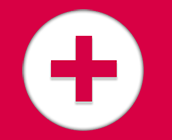In light of recent high-profile security breaches impacting major organizations and various healthcare entities, the importance of specialized cybersecurity knowledge in the healthcare sector has never been clearer. Cambridge College of Healthcare & Technology’s Healthcare Cyber and Network Security programs are designed to address this critical need. By enrolling in our programs, students are prepared to step into key roles where they can significantly reduce risks by implementing robust cybersecurity measures. Our upcoming blog series will explore these breaches in detail, highlighting the crucial role that educated professionals play in safeguarding sensitive healthcare information. Join us to become a part of the solution, ensuring you are the right person in the right place at the right time to protect against and respond to cybersecurity threats.
Each blog in this series will explore an organization that experienced a security breach and how they were impacted. We will start with a recent breach at Kaiser Permanente.
Kaiser Permanente
According to The HIPAA Journal, in April 2024 there were 54 breaches reported to the Health and Human Services Office for Civil Rights. While this was actually a lower number of breaches compared to previous months, the number of affected records was very high. One of the worst data breaches occurred at Kaiser Permanente which affected more than 13 million people. Luckily this particular data breach was not malicious and was not the result of an entity trying to steal data. This data breach can be attributed to tracking technology that was installed on websites and mobile applications that allowed information to be improperly released to third party vendors. The information that was released consisted of names and website browsing activity which would have been of a medical nature and could constitute a HIPAA violation. The tracking tools have now been removed from the website and applications and customers were notified about the breach.
Unfortunately, third party tracking software on healthcare websites has been found to be fairly widespread and there have been many data breaches and subsequent lawsuits because of it. This type of technology has generally been used in the healthcare sector to learn more about how patients interact with their websites and the information can be used to effectively allocate resources for better patient outcomes. However, this information is often being collected without the patient’s consent and reduces the level of expected privacy. There is an ongoing debate about how best way to handle this kind of tracking software and there will hopefully be more guidelines and procedures established in the near future.
To learn more about this issue and other issues facing healthcare organizations and how to help prevent data breaches, check out the cyber and network security certificate and degree programs at Cambridge College of Healthcare & Technology. These programs are fully online and work with your busy schedule. Give us a call today at 1-877-206-4279 or fill out the Request Info form and an admission representative will reach out to you with additional information. We look forward to hearing from you.


